You can also keep track of the situation of electric vehicles in the United States at the end of each month. In 2021, there was a minor outbreak of electric vehicles in the United States with the change of government. In May, the sales of electric cars in the United States reached 53,779 units, an increase of 19.2% compared to the previous month and a year-on-year increase of 329% compared to the sales of 12,536 units last year.
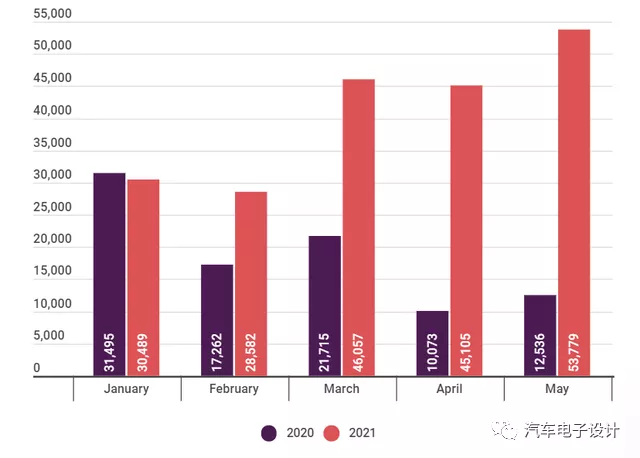
Note: The disturbance caused by this wave of the epidemic is basically completely restored.
U.S. New Energy Vehicle Market
1) Electric Vehicle Market
In terms of type, pure electric vehicles still account for the majority in May, with a quantity of 37,967 units (70.6% market share), and plug-in hybrid electric vehicles are 15,812 units. As of May, the cumulative sales of new energy vehicles in the U.S. market in 2021 reached 230,687 units with a total of 1.9383 million in stock, soon to exceed 2 million. From these two aspects, the sales willingness of U.S. automakers is gradually increasing. As an aside, for hybrid electric vehicles, the number in the United States is 75,025 units (27,085 sedans), an increase of 170.5%. Fuel cell vehicles sold 295 units in the United States, and the total sales volume in 2021 was 1,726 units. The total stock of fuel cell vehicles in the United States is 10,667 units.
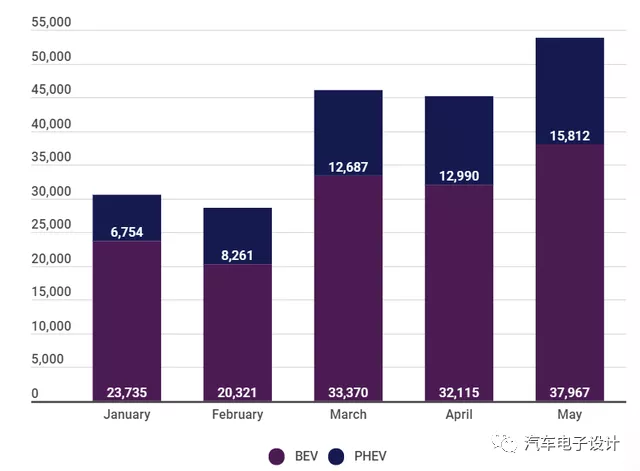
In terms of specific models, the popular LEAF and Prius PHEV (which has been increasing significantly in 2021) and Bolt EV data can still be seen. Currently, Tesla’s model accounts for more than 54% of the BEV market in the United States (a total of 147,500 units), and the number sold in the United States in 2021 was 79,600 units.
Note: In the Chinese market, the number of insured new energy vehicles in January-May was 103,700 units, and China has surpassed the United States to become the largest market.
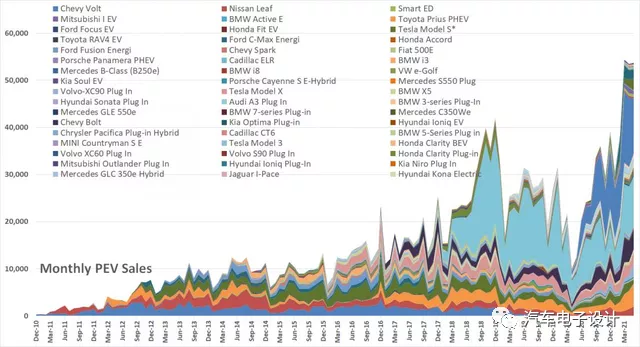
2) Infrastructure IncrementIn May 2021, the US added a total of 609 charging stations (with 1,736 charging ports), with the vast majority (439 stations) built by ChargePoint, mainly distributed in California (170 stations), Massachusetts (80 stations) and New York State (59 stations). In terms of inventory, the US currently has 46,104 electric vehicle charging stations (with 117,674 charging ports). Among the 117,674 charging ports, there are only about 18,385 direct current charging ports, indicating a significant lack of infrastructure in the US.
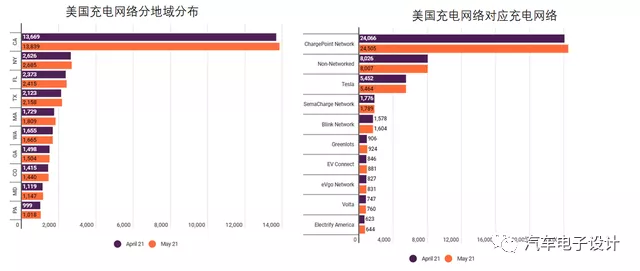
When will US policy be implemented?
In the electric vehicle stimulus plan initiated by the Biden administration, a whopping $174 billion was initially allocated for electric vehicles, with $100 billion reserved for consumer incentives, credit, or tax credits. However, the revised bipartisan bill completely eliminated any mention of consumer subsidy funding, and reduced the initial $174 billion to only $15 billion. Of this $15 billion, $7.5 billion will be used to strengthen the charging network and achieve the national goal of building 50 charging stations, while the other $7.5 billion will be used for the replacement of electric public vehicles.
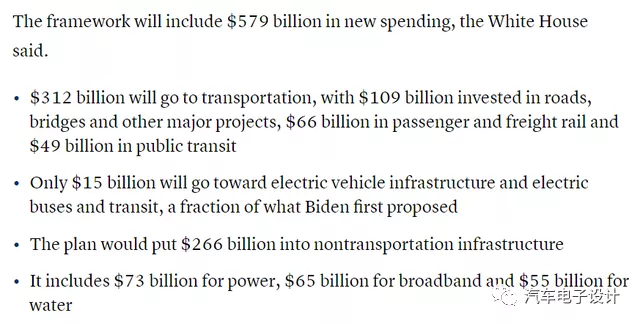
Interestingly, the Democratic Party plans to provide funding for electric vehicle tax refunds in separate legislation later this year. This game-playing indicates that there is basically no possibility of any tax refund reform being implemented in 2021. As such, it is expected that there will be no substantive change in the US market in 2021, except for those who feel they are being stuck with the $7,500 subsidy and will speed up their launches.
In summary, considering the substantive aspects, it is expected that various bills will be implemented as soon as possible, at the earliest by 2022, and electric vehicles will only be deployed by that time in the US. Before that, it will still be a process of accelerated promotion by existing new energy vehicle companies (previously, Japanese Toyota and Honda as well as European car companies were worried that the $7,500 tax refund quota of 100,000 units would be used up, so they did not dare to sell too many PHEVs).
This article is a translation by ChatGPT of a Chinese report from 42HOW. If you have any questions about it, please email bd@42how.com.
